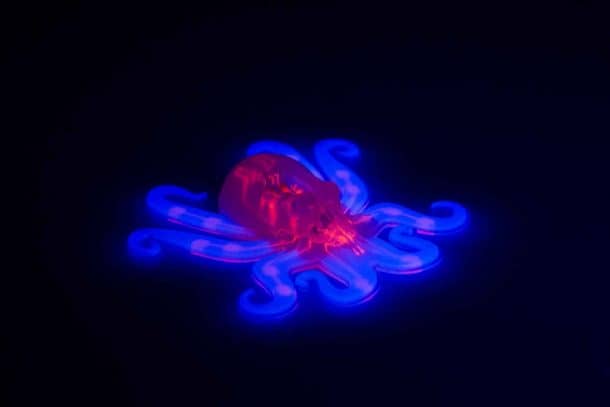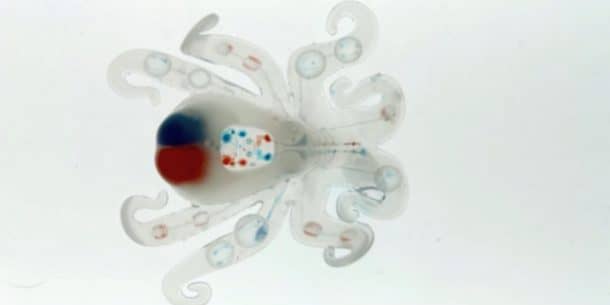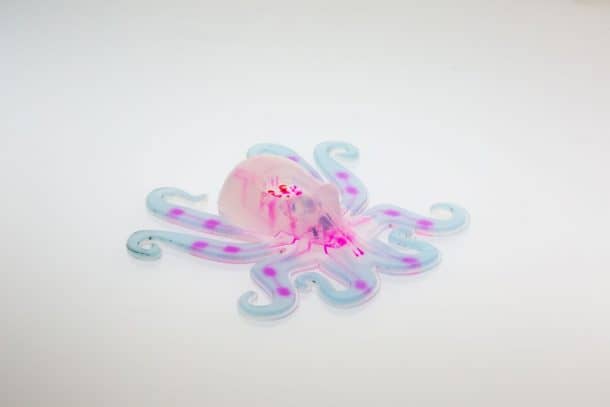The engineers from the Harvard University have designed an adorable little robot that resembles an octopus. The small, slimy, and squelchy robotic octopus is propelled by farts.

To design the octobot, they poured liquid silicone into a mould while the legs were 3D printed. The body of the robot houses a soft controller that forces the hydrogen peroxide into the reaction chambers, converting the liquid into water vapours and oxygen.
Tiny channels run throughout the body of the octopus robot. As the oxygen gas passes through these passages, the octobot wriggles its legs. The gas is finally allowed to move out of the body of the bot via tiny orifices, just like farting.

The design team published the complete assembly manual of their flatulent octobot in Nature. The latest octopus robot stands out from the long list of previously proposed octobots due to its squishy structure. The team-lead for this octobot, Michael Wehner explained that safety is one of the main concerns that has kept the wide scale integration of robots in check:
“We’ve been promised robots around us for decades now.”
However, even a cute bot like the egg-shaped security robot who knocked down a toddler at the mall can put people off robots. As opposed to a robot with rigid parts, soft and squishy robots are much safer to use. The team believes that soft robots might be better equipped to adapt to a world designed for the humans with soft bodies.
“We think the octopus just looks cool. We thought a pretty cool looking octopus might help get people on our side — convert people to soft robotics.”

The octobot can currently run on it’s own for up to eight minutes. You can see the tiny, flatulent, octobot in this video:


